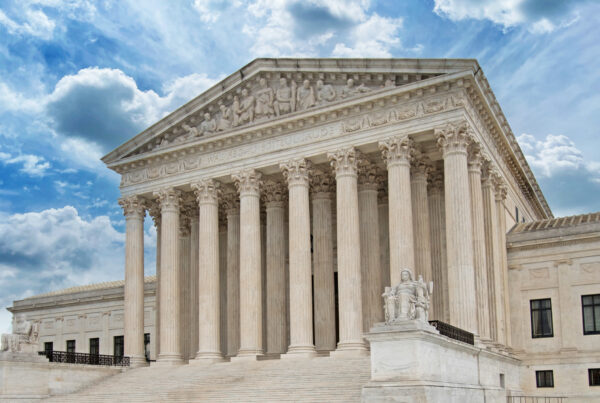On January 8, 2024, Governor Phil Murphy enacted the landmark Structural Integrity Legislation (S2760), a crucial response to the tragic collapse of a high-rise condominium in Florida in June 2021. This unthinkable tragedy resulted in the loss of 98 lives. Now, this legislation aims to safeguard the state of New Jersey against a similar tragedy, marking a proactive preventative step forward.
Now that the law has been signed, the two aspects of this law must be understood. The two pivotal components are as follows:
- Maintaining the structural integrity of certain buildings
- Funding of reserves of almost all communities
Many articles already address the engineering details and requirements stated in the law. Alternatively, this article will address the financial aspects of the law and what Boards should – and can do – going forward. The following are key points to consider:
- The law exclusively pertains to condominiums, homeowner associations, and cooperatives (“communities”), excluding rental buildings.
- If the buildings are built of only wooden frames, the structural integrity part of the law does not apply. If the primary load-bearing system is made of almost anything else, including heavy timber, it does.
- The structural integrity portion of the law only applies to residential buildings and excludes nonresidential structures like the clubhouse.
- For buildings where the law does apply, inspections and studies need to be performed within specific timelines unless there is visible damage, which requires an inspection to be done within 60 days.
- Licensed professionals must perform inspections and periodical studies. Studies prepared or modified by the Board are not acceptable.
- The reserve funding section of the law does not apply to communities with common elements that cost less than $25,000 to replace.
- Any new communities created after the law was signed will need to have a preventive maintenance schedule prepared by the developer.
- A new reserve study must be prepared within two years of a community being turned over to the owners by the developer.
Many communities maintain a deferred maintenance fund for infrequent expenses like painting or power washing. However, the law defines deferred maintenance as either delayed or not done. It defines preventive maintenance as proactive maintenance projects that prevent future significant repairs. To avoid confusion, it may be easier for communities to rename the deferred maintenance fund to preventative maintenance if they previously existed.
With the law’s background and definitions covered, let’s delve into its impact. If your building falls under the structural integrity aspect, periodic inspections are required, following specific timelines based on your building’s age. Early inspections and preventive maintenance can cut future costs, enabling the Board to devise a long-term plan. This approach also grants more time to finance upcoming preventive projects crucial for maintaining the load-bearing system’s structural integrity. For instance, waiting until the last inspection year means five fewer years to fund these vital projects. These are the steps we recommend:
- Determine if the law applies to your community.
- Determine when the next inspection is due.
- Obtain a proposal from a licensed professional to perform the inspections.
- Consider having the inspection done sooner rather than later.
- Discuss the inspection report with the engineer.
- Establish a plan to start funding preventive maintenance projects.
- Follow that plan diligently.
If, during an inspection or visibly noted, immediate projects to repair the structure are identified, swift action is crucial. The Board, with support from the managing agent and engineer, must promptly prepare project specifications, issue a request for proposal (RFP), and obtain quotes. If funds are insufficient, the law permits the Board to secure a loan or approve a special assessment without document amendments or until owner approval.
As mentioned above, there is also the reserve funding section of the law. This section applies to all communities with common elements valued at over $25,000. For those communities, these are the questions you need to answer:
- Do you have a reserve study?
- How old is it?
- When does the law require the study to be updated?
- Are you following the study’s recommendations?
- If not, how much do you need to fund to catch up?
- How much time do you have for this catch-up period?
Any community without a reserve study needs to have one prepared within a year of the enactment of the law. Newer communities that have recently transitioned from developer to homeowner control have two years to prepare a reserve study from the transition date. For the others, even though the law requires the study to be updated every five years, we recommend that the Board should have the reserve study updated/prepared sooner rather than later. The reason is that inflation has been exceedingly high in recent years. Costs have increased much faster than anticipated, and any replacement cost over three years old is outdated.
Other requirements need to be followed per the new law. An association can no longer utilize a reserve study prepared by anyone other than the professionals mentioned in the law. A study prepared by the Board or management is no longer acceptable. In addition, reserve studies prepared by an engineer but modified by the Board are also no longer acceptable. Boards can modify their funding levels but not the actual study itself. We recommend that once the reserve study is prepared, the Board and the engineer review the reserve study together and come to an agreement regarding any changes or modifications needed. This way, the changes will be implemented by the engineer, and the Board will be in compliance with the law.
The law defines “adequate funding” as a level of funding that does not result in a deficit in the fund balance when major repairs or replacements are needed, without a special assessment or loan obligation. This does not apply if an asset reaches the end of its established useful life earlier than predicted by the study. Boards often fund below the recommended reserve study amount without considering its future impact. To comply with the law, Boards must revise the 30-year cash flow based on the lower funding level. If this results in a deficit, the lower funding is non-compliant. Boards should consult with the engineer to assess the funding level’s impact on future deficits.
For communities where the difference between the current funding of the reserves and the funding required to make the reserves adequate results in an increase of maintenance assessments greater than 10%, notwithstanding the increases due to other items, the Board has up to the earlier of:
- Ten years to increase the funding or
- The date the fund level is anticipated to fall below zero
The Board should keep in mind that if the period is greater than five years, the reserve study will need to be updated, and funding requirements may change. If the difference between the funding requirement to render the reserves adequate and current funding is less than 10%, the difference must be made up in two years.
The law is extremely specific on the utilization of funds for the repair or replacement of a specific line item in the reserve study in excess of what is accumulated in the fund for that line item. The community can utilize funds in excess of what is accumulated in the fund only if:
- The utilization of the excess funds does not result in the inability to perform other projects due in the next five years and
- The Board adopts a resolution to recover those funds within the next five years
Boards need to keep in mind that this recovery is in addition to the funding per the reserve study, and within that period, the study may reach its limit of five years and need to be updated. Boards should also be aware that this requirement does not limit the Board from instituting a special assessment and/or obtaining a loan to pay for the project.
Boards often inquire about non-reserve study expenses like installing cameras or speed humps. Previously, we have always recommended not charging such expenses to reserves if deemed material but emphasized the Board’s discretion. Now, it is more complex. Using funds for such expenses may violate the law. As noted above, since even exceeding anticipated spending on items already included in the reserve study has ramifications, paying for items not in the schedule may not be acceptable. Boards must exercise caution in spending reserve funds.
One more aspect to note, not covered in the law, is inter-fund balances, particularly involving money owed to the replacement fund. These often arise due to cash flow constraints or operating deficits, with Boards borrowing from reserves. Previously, we advised repaying such funds to comply with interpretation of IRS regulations allowing the deduction of reserve funding. Now, prolonged balances beyond one year may violate the law, necessitating Boards to either pay back the funds or make the borrowing a permanent transfer.
Furthermore, in the past, we have always recommended that the engineer use the fund balance as the beginning balance in the reserve study. However, Boards may no longer be able to do that when the operating fund owes money to the reserves. Each situation may be different, but going forward, Boards will have to eliminate these inter-fund balances to bring the cash and fund balances in line and use the adjusted balance in the updated study.
This information is dense, and the law’s implications are significant. I am hoping this article provided some clarity. At WG, we strongly advise Boards to convene with their professional teams for a tailored discussion on how the law specifically affects their community. Given the unique nature of each community, understanding its distinct impact and ensuring compliance is crucial.
If you have any questions, please do not hesitate to reach out to your WG advisor or e-mail us at [email protected].





